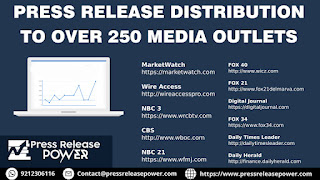How to Choose the Right Sewing Machine for Beginners
Embarking on a sewing journey can be an incredibly rewarding and creative experience. Whether you want to craft your own clothing, create beautiful home decor, or simply repair garments, having the right sewing machine is essential. But with so many options on the market, choosing the perfect sewing machine for beginners can be a daunting task. In this guide, we will walk you through the key factors to consider when selecting a sewing machine, helping you make an informed decision that suits your needs and skill level.
Machine Type
The first and most crucial step in choosing a sewing machine for beginners is deciding on the type of machine that best fits your needs. There are primarily three types to consider:
Mechanical Sewing Machines:
Ideal for beginners due to their simplicity.
Operated manually using dials and levers.
Affordable and easy to maintain.
Limited built-in stitches and features.
Computerized Sewing Machines:
Offer a wide range of built-in stitches and features.
User-friendly with digital displays and touchpad controls.
Suitable for both beginners and advanced sewers.
Can be more expensive than mechanical machines.
Serger Machines:
Designed for specialized tasks like hemming and edging.
Creates clean and professional seams.
Not recommended as the primary machine for beginners.
Consider your sewing goals and budget when deciding which type of machine is right for you. Mechanical machines are great for those on a tight budget and seeking simplicity, while computerized machines offer versatility and convenience.
Stitches and Features
The number and variety of built-in stitches and features can significantly impact your sewing experience. Beginners should look for machines that offer a range of basic stitches, such as straight, zigzag, and buttonhole stitches. These stitches are essential for most sewing projects.
Additionally, consider the following features that can enhance your sewing capabilities:
Adjustable Stitch Length and Width:
Allows you to customize stitch dimensions for different fabrics and projects.
Automatic Needle Threader:
Simplifies the threading process, saving time and frustration.
Free Arm:
Helpful for sewing small, circular items like cuffs and hems.
Drop-in Bobbin:
Makes bobbin insertion and threading effortless.
Speed Control:
Enables you to control sewing speed, which is particularly useful for beginners.
Extension Table:
Provides extra workspace for larger projects.
One-Step Buttonhole:
Simplifies buttonhole creation for garments.
Evaluate your sewing needs and prioritize the features that will make your sewing experience more efficient and enjoyable.
Brand and Reputation
Choosing a reputable sewing machine brand is essential to ensure the quality and reliability of your purchase. Some well-known and trusted brands in the sewing machine industry include Brother, Singer, Janome, and Pfaff. These companies have a long history of producing reliable machines and providing excellent customer support.
Reading reviews and seeking recommendations from experienced sewers can also help you make an informed decision. Researching the reputation of a brand and its customer service can save you headaches down the road.
Budget
Determining your budget is a crucial step in selecting the right sewing machine. Prices can vary significantly based on the type of machine and its features. Mechanical sewing machines are generally more budget-friendly, while computerized machines with advanced features can be more expensive.
Keep in mind that sewing is an investment in your creativity and skills. While it's important to stick to your budget, consider saving a bit more for a higher-quality machine that will last longer and provide a better sewing experience. It's often worth paying a little extra for durability and reliability.
Size and Portability
Consider the size and portability of the sewing machine, especially if you have limited space or plan to attend sewing classes. Compact and lightweight machines are easier to transport and store. Some machines even come with built-in carrying handles for added convenience. Before making a purchase, measure the available space in your sewing area to ensure that the machine will fit comfortably.
Ease of Use
For beginners, a user-friendly sewing machine is essential. Look for models with clear and intuitive controls, as well as comprehensive user manuals or online tutorials. Many modern sewing machines also offer on-screen tutorials for basic functions, making it easier to learn and master sewing techniques.
Warranty and Support
Check the warranty and customer support options provided by the manufacturer. A good warranty can give you peace of mind in case of any defects or issues with your machine. Additionally, having access to responsive customer support can be invaluable when you encounter problems or have questions about your sewing machine.
Test Before You Buy
Whenever possible, test the sewing machine in person before making your final decision. Visit local sewing machine retailers or attend sewing expos where you can try out different models. This hands-on experience will help you get a feel for the machine's comfort, noise level, and ease of use.
Choosing the right sewing machine for beginners is a significant decision that can impact your sewing journey for years to come. By considering factors such as machine type, stitches and features, brand reputation, budget, size, ease of use, and warranty, you can make an informed choice that aligns with your sewing goals and preferences.
Remember that the perfect sewing machine for one person may not be the ideal choice for another. Take your time to research, test, and evaluate different options to find the sewing machine that suits your needs and allows you to unleash your creativity. With the right sewing machine, you'll be well on your way to creating beautiful and personalized sewing projects. Happy sewing!

.jpg)
.jpg)






 English (US) ·
English (US) ·